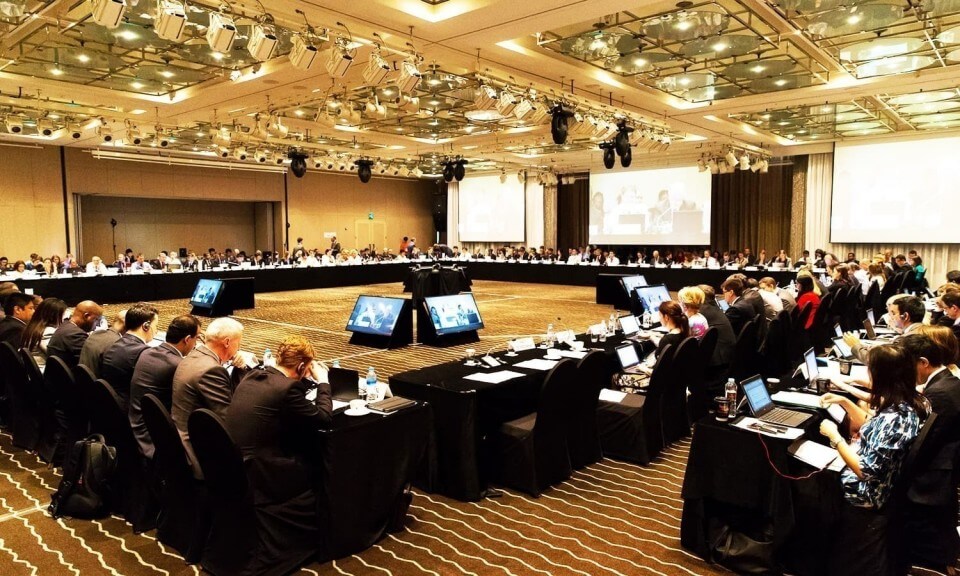Legal blog
What is the Financial Action Task Force?

The Financial Action Task Force is an inter-governmental body established in 1989 by the ministers of its member jurisdictions, this is the definition given as per FATF website, but really, what is it for a common reader to understand?
The FATF is established by the G7* summit that was held Paris in 1989, where these countries decided that they needed a set of regulation to fight financial crime with all of its new forms of money laundering and terrorism financing. These set of recommendations need to be in the form of international regulations that every member state apply and get evaluated from the FATF.
In other words, the FATF will not be in conflict with International internal sovereignty for members state, yet there will be an evaluation that based on it, the FATF will either give a recommendation for the member state to enhance the measures it takes to fight financial crime or evaluate it as “committed to the standard”. The FATF we knew 30 years ago was established with only 7 member states, now it includes 39 members, which is considered massive progress and a great move forward towards fighting financial crime.
FATF in the United Arab Emirates
The United Arab Emirates is an active member of the Middle East and North African Financial Action Task Force; and by virtue of its membership in the Gulf Cooperation Council, the UAE also attends meetings of the Financial Action Task Force. In 2006 the United Arab Emirates got the first evaluation from the FATF, it was catastrophic when it comes to DNFBP Sector, the summary of the evaluation was that there is no overall published government policy on AML**/CFT*** matters.
While the national committees tasked with the responsibility of overseeing the AML/CFT efforts might be expected to have formulated certain objectives to underpin a formal strategy, the mission was not made privy to any of the committees’ discussions or output. All in all the FATF found that the country’s systems and frameworks geared to prevent criminal abuse of the financial system to be “satisfactory” at that time.
In my opinion, the United Arab Emirates is moving “gradually” toward the standard of FATF, for example in 2018 the United Arab Emirates issued by Federal Decree-Law No. 20 of 2018 on Anti-Money Laundering and Combating the Financing of Terrorism and Illegal Organizations. The AML Law introduced a number of concepts recommended by FATF designed to enhance the UAE’s effectiveness in identifying and preventing attempts at money laundering and terror financing. Recently, the United Arab Emirates Central Bank is focusing on the real estate sector as part of its work to combat money laundering in the country.
Will FATF affect immigration?
Back in the day, especially in the Middle East, people really didn’t bother about proving their financial ability, documenting their monetary transactions, paying taxes and complying with the financial regulation of their countries. The necessity of preparing a file for immigration or even a visa did not exist 50 years ago. All that a person needed back then was just a travel document. Travelling and moving around the world was much easier.
Nowadays, people in the Middle East get this surprise when they want to travel somewhere and they have to fill a visa application, support it with enough documents proving their financial capability. The issue comes with explaining these documents, and as I always say, you can have all the documents in the world yet you are not making yourself clear.
One of the pros of FATF that if effectively fight money laundering, yet one of its cons that it will not recognize that here in the middle east people still hold cash in their hand and they will sometimes do deals with no written contract. Some individuals get their bank account closed because they couldn’t provide sufficient documents proving the details of their deal or sale...etc.
Since I worked in the immigration industry, I noticed that people do not plan for their future. They have the impression that if someone wants to immigrate that is like a product he buys; however, it doesn’t go like that to prepare a file for immigration. You have to go through a process where you disclose your source of fund, background and professional history.
(*) G7 is an international intergovernmental economic organization consisting of the seven largest IMF-described advanced economies in the world: Canada, France, Germany, Italy, Japan, the United Kingdom, and the United States.
(**) AML is an abbreviation for Anti Money Laundering.
(***) CFT is an abbreviation for Combating the Financing of Terrorism.
Written by:
Moustafa Seddik | Bayat Legal Services

This publication is for general information purposes only. It does not purport to provide comprehensive full legal or other advice.
Legal Advice Middle East and the contributors accept no responsibility for losses that may arise from reliance upon information contained in this publication. This publication is intended to give an indication of legal issues upon which you may need advice.
Full legal advice should be taken in due course from a qualified professional when dealing with specific situations.
